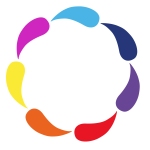Recently in the workplace, and in life, I have been exploring the concept of competition and collaboration. What I have observed is a significantly higher tendency towards competitive behaviour as opposed to collaborative efforts. This left me asking the question why? Is competition really good for business or is it simply a ‘traditional’ way of operating that requires some much needed attention and re-direction?
According to Wikipedia, “Competition occurs naturally between living organisms which co-exist in the same environment. Competition, in biology, ecology, and sociology is a contest between organisms, animals, individuals and groups for territory, a niche, for resources and goods, mates, for prestige, recognition, awards, social status, for leadership. Competition is the opposite of cooperation. It arises whenever at least two parties strive for a goal which cannot be shared or which is desired individually but not in sharing and cooperation”.
In short, we are all born with a natural instinct to compete, but again is this really good for business or life in general? And can we change our habitual nature with emotional intelligence?
“The primary belief that drives competition is that it helps the crème rise to the top, it drives excellence!”
If I think back to my childhood at school, I can see where the idea of ‘excellence’ started with grades, exams, assignments and contests. If you were caught sharing knowledge or collaborating with others, say during an exam or an assignment, this was considered cheating! We were taught from a very young age to compete with one another and to take pride in being the top of the class. And the only way to get there was to know it all…yourself.
Therefore, it’s clear our education has encouraged our natural instinct to compete but again does this really work in life in general? Competition is completely the opposite to most of the aims of building communities, whether as teams, organisations or families. And isn’t this the main driver behind life in general … to build communities?
So while I agree that “competition can help promote curiosity as we see in all the extraordinary innovations in the business, scientific, sport and academic worlds, if unchecked it can also drive a close minded, un-sharing mindset where the focus shifts to defensiveness and protecting what we have”.
What is collaboration?
Collaboration is working with each other to do a task and to achieve shared goals. At the conceptual level, it involves Awareness, Motivation, Participation, Negotiation, Exchange, Reflection and Engagement. Now doesn’t that just feel better!
The aim of collaboration is to produce synergy and coherence, or in other words, cooperation and unity; outcomes that are only possible by working with others. Effective collaboration, however, is hard to achieve, because various businesses, teams and people have different aims, traditions and styles of working. Overcoming differences to create productive collaboration is a key challenge and you can only do this by realising you don’t have all the answers and you don’t need to know it all. As an alternative you recognise the gifts and talents each team player brings and respect that each person has an important part to play in achieving the task at hand or the shared goal. To relate it back to exams, it’s redefining the word cheating into a belief that cheating is in actual fact the act of not sharing! If someone asked you what you thought about a particular question on the exam and you didn’t share your thoughts this would be labelled cheating! Imagine what this belief would create in our society….
So my conclusion is this ….a touch of competition is healthy and can keep us striving towards new discoveries and innovations, yet as they say “two heads are better than one”. And in the sports industry, well, there can only be one winner. However, when it comes to business and life in general, and the type of people you want to work with, be led by and surround yourself with, the world needs more collaboration and team work and less competition and conflict.
So what can you do today to be a better team player?
Courtney ‘Co-Creator’ Wilson
m: +61 (0)417 107 888| e: courtney.connect@outlook.com






